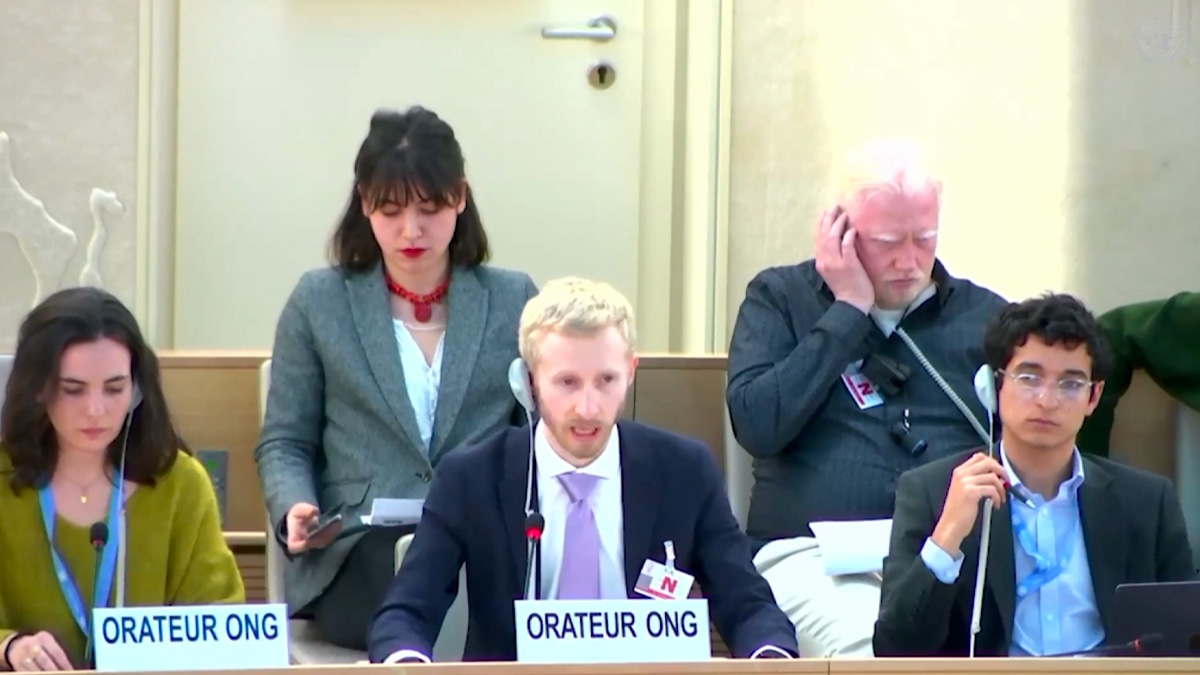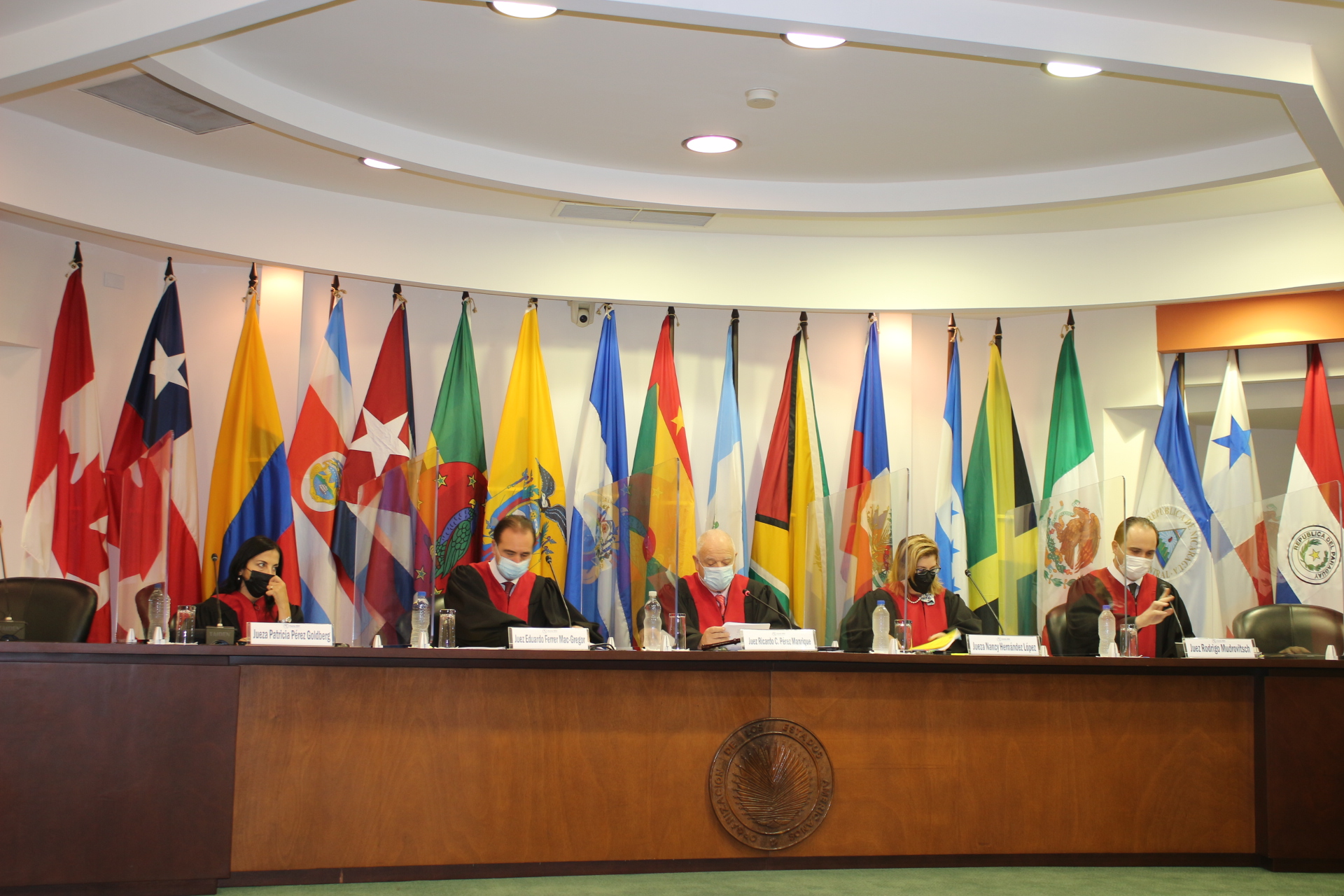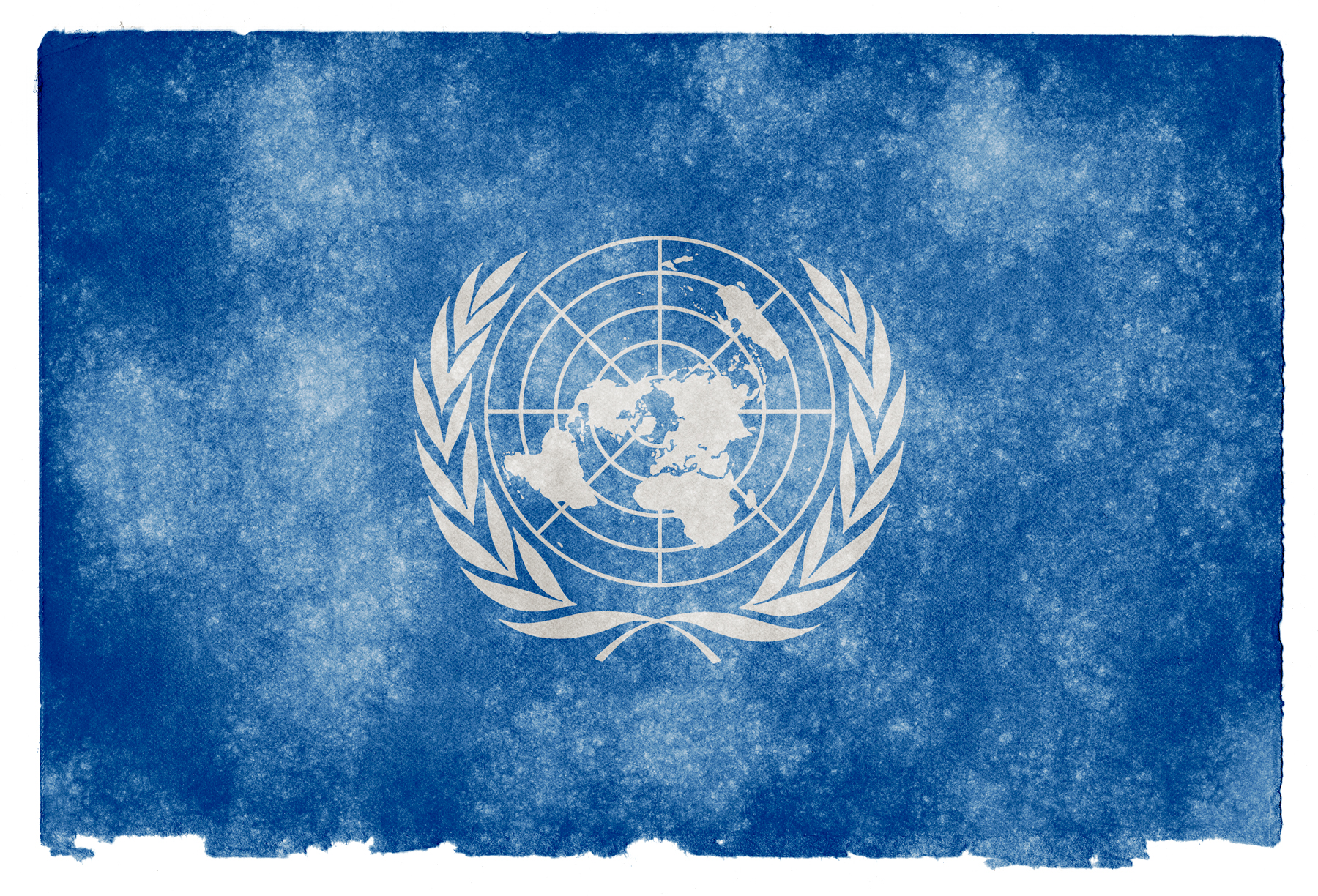
Sudan: UN Security Council must take urgent action to protect civilians
Over a hundred civil society groups and organisations urge the UN Security Council to take urgent action to protect civilians in Sudan. Read the joint letter below.
© UN Web TV

The UN Independent Expert on the Enjoyment of Human Rights by Persons with Albinism presented the Human Rights Council with a report noting continued barriers for defenders working on albinism and calling for greater cooperation between civil society groups.
In an important reminder of the diversity of the human rights movement on the 25th anniversary of the UN Declaration on Human Rights Defenders, the UN Independent Expert on the Enjoyment of Human Rights by Persons with Albinism, Muluka-Anne Miti-Drummond, presented her latest thematic report to the 52nd session of the Human Rights Council on 9 March. In this report, she notes the barriers that defenders working on albinism often face, calls for improvements in civic space for groups working on albinism, and highlights good practices ‘to enhance the work of human rights defenders working on albinism’.
Many of her recommendations are fully aligned with those of other UN experts, including those of the UN Special Rapporteur on Human Rights Defenders. In practical terms, Miti-Drummond calls for improvements in the enabling environment for human rights defence; commitments to investigating attacks against defenders of the rights of persons with albinism; and stresses the need for recognition and visibility of the critical work of groups promoting the rights of persons with albinism.
She further emphasises the importance of data-gathering to better understand the particular situation of groups working on albinism, including the nature and prevalence of intimidation and attacks against them.
An additional step that the Independent Expert recommends is to ensure that human rights defenders guidelines are implemented by diplomatic missions in such a way as to prioritise partnerships between more traditional groups of defenders, and those working to advance the rights of persons with albinism. This would increase inclusion and solidarity within civil society.
These recommendations were echoed by many States and civil society actors speaking during the debate. The Global Albinism Alliance (GAA), in collaboration with ISHR, highlighted the critical importance of implementing the recommendations.
Speaking to the Council, Antoine Gliksohn of GAA reiterated the role that human rights organisations can play to fully embody principles of universality, solidarity and intersectionality in the defence of rights. This includes collaboration and knowledge-sharing, as well as visibility efforts to recognise organisations working specifically on albinism.
‘Taking these steps will have a significant impact on elevating the voices of persons with albinism and afford us greater protection of the rights to which we are entitled’, Gliksohn emphasised.
Other groups highlighted inclusive rights frameworks; the plan of action of the African Union; and reiterated the importance of understanding the challenges at a global scale.
In her concluding statement to the Council, the Independent Expert highlighted a ‘lack of knowledge about how albinism fits within human rights’, notably among defenders working themselves on albinism. This is despite significant improvements made over the past decade, in particular thanks to the efforts of her predecessor, Ikponwosa Ero. By increasing the capacity of those carrying out work ‘to speak with human rights language, and to be empowered to know that they are doing important work of promoting and protecting human rights’ there can be a ripple effect that improves rights protections for all persons with albinism.
Download as PDF
Over a hundred civil society groups and organisations urge the UN Security Council to take urgent action to protect civilians in Sudan. Read the joint letter below.

In a series of groundbreaking rulings in early 2024, the Inter-American Court of Human Rights and the Constitutional Court of Colombia set new precedents that significantly enhance protections for human rights defenders across Latin America.

In the face of multiple human rights crisis in the region, as well as significant political changes, defenders spoke at the Human Rights Council’s 55th session about the realities they have faced, calling for greater action and new mechanisms, and noting that political expediency shouldn't trump the objective assessment of the need for Council action on country situations.